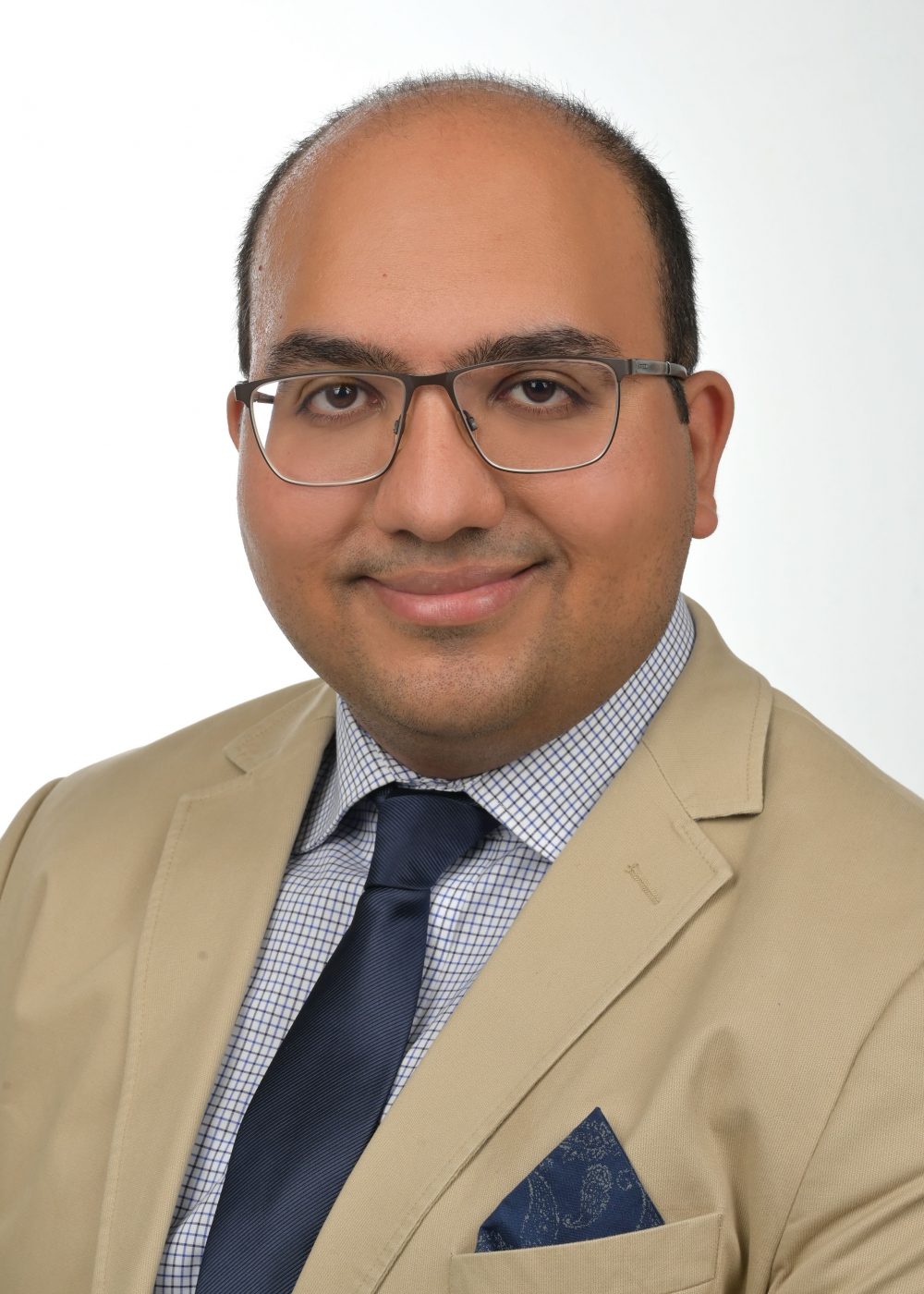UCCS computer science faculty receives Quantum Research Translational Seed Grant

Armin Moin, Ph.D., received a new $50,000 seed grant that will jumpstart innovation at the intersection of Quantum Computing, Artificial Intelligence (AI), and Software Engineering. The grant, part of $1.5 million provided by the Colorado Economic Development Commission and administered by CU Boulder, is designed to support cutting-edge research to the point of commercialization.
Moin, Assistant Professor in the Computer Science Department of the College of Engineering and Applied Science (EAS), has always been passionate about innovation and entrepreneurship through research. He sees this grant contributing to future discoveries and enabling his QAS (Quantum Classical AI and Software Engineering) Lab to enhance its research program on model-driven engineering of hybrid quantum-classical AI-enabled software systems.
“This grant will allow my research lab at the UCCS College of Engineering and Applied Science to realize both my research and innovation visions and boost the spin-off creation potential of the college in one of the core areas of strength in Colorado as a main hub, not only nationwide but also globally, for quantum technologies,” Moin said.
UCCS research outcomes are typically disseminated through peer-reviewed venues, such as accredited conferences and journals. However, some research works also have the potential for exploitation through spin-offs of the university. The four individual University of Colorado campuses, all research-intensive universities with high Carnegie rankings, have an outstanding track record in research and spin-offs. This new project will be one of those with potential for dissemination and exploitation through both research and venture creation tracks.
Moin will solve a novel real-world problem to improve efficiency and develop tools to enable software developers and AI experts to create modern advanced software systems, such as smart Cyber-Physical Systems and Internet of Things (IoT) services. These systems will partially run on various types of computational resources, including various quantum processors.
The work will deploy cutting-edge AI technologies to bring AI-enabled systems to the next level, even as AI and quantum technologies are contributing to their own advancement in real-time. As AI is used more and integrates deeper into industry, changing workforce needs are emerging.
“One of the specific problems that we will target is the lack of a trained workforce in the IT sector ready to develop quantum and hybrid quantum-classical AI-enabled software systems,” Moin said. “There will be an urgent need for such technologies, and we simply need to supply tools and technologies to the market that can assist the trained workforce in the IT sector to overcome challenges and become skilled to meet new expectations of the job market.”
This grant will connect UCCS to the quantum ecosystem of Colorado. Colorado is a national and global hub of innovation in quantum technologies. To date, the hub has mostly been concentrated in the Boulder and Denver regions.
One of Moin’s motivations for applying for this seed grant was to become involved in the Quantum Initiative at CU Boulder, called CUbit, a smart play on the word Qubit, the basic unit of quantum information, the quantum variant of bits. CU stands for the University of Colorado.
“We will build a Minimum Viable Product (MVP) and will pursue follow-up funding through both public and private funding channels,” Moin said.
Also, playing on the MVP acronym, Moin said, “We’d be excited to go from creating an MVP, which is a Minimum Viable Product, to becoming the Most Valuable Player, MVP, in the Quantum Software and AI Engineering arena.”
As the only Carnegie-designated research university in the southern Colorado region with a high research expenditure level and doctorate degree conferral, UCCS will expand the quantum ecosystem to the Colorado Springs area.
Moin said, “There is an urgent need for public-private partnerships in various fields in the quantum and post-quantum era, ranging from cryptography to AI. Through this grant, UCCS will help enable new opportunities for synergy and partnership together with other faculty and their labs as part of a plan for establishing future collaborations in and beyond UCCS.”
“Given the UCCS College of Engineering and Applied Science’s strengths in cybersecurity and cybersecurity research, UCCS is prepared to lead the creation of a unique regional community in the ecosystem with beneficial dynamics for all players,” Moin said.
UCCS is currently the only university in Colorado with a designation of National Security Agency (NSA) Center of Academic Excellence in Cyber Research (CAE–R).
The impact this work makes is threefold: advancing innovation, creating the best product for the market, and developing forward thinking skills in student researchers.
Moin will advance innovation, which will require his researchers to learn state-of-the-art technologies and then innovate beyond the state of the art.
Creating the best product for the market includes strengthening competencies in AI and quantum technologies, as they create significant national security implications not only for the U.S. but also for allies. UCCS will be able to lead this development and influence the regional economy with job creation in AI, software, and quantum areas.
For Ph.D., Master’s, and undergraduate research students, the opportunity is to create a proof of concept or prototype. Students will need to invest a lot of time in learning to be able to innovate. Pivoting in entrepreneurial ventures is common, so Moin knows his research team will be ready to pivot to create the best software and tools.
Moin said, “I’m glad my students will be positively impacted by this project as they will become ready for the job market of the near future. The skills they will learn are the ones they will most likely require by the time they graduate and become available as talent in the job market.”
About Armin Moin
Armin Moin is a Tenure-Track Assistant Professor and Director of the Quantum-Classical AI and Software Engineering (QAS) Lab at the Computer Science (CS) Department of the University of Colorado Colorado Springs (UCCS). Before starting his faculty position, he worked as a Postdoctoral Scholar-Employee at the CS Department of the University of California, Santa Barbara (UCSB) in the U.S. and as a Postdoctoral Scholar at the CS Department of the University of Antwerp and FlandersMake in Belgium. Dr. Moin obtained his Ph.D. in CS from the Technical University of Munich (TUM), Germany, one of the world’s top universities, in 2022. He also has a Master’s in CS and an Executive MBA in Innovation and Business Creation. His research is focused on the intersection of Artificial Intelligence (AI) and Software Engineering (SE), particularly AI4SE and SE4AI, emphasizing hybrid quantum-classical computing. Please refer to his academic homepage at https://faculty.uccs.edu/amoin/ for more information.
Latest Communique
- Upcoming Campus Events: April 28 – May 4Learn about the sonar abilities of bats, attend the ROAR awards, check out some trivia and join EPIIC for a networking night! (More)
- Meet the Vice Chancellor for University Advancement, Communications, and Engagement finalistsUCCS will be hosting three finalists for the Vice Chancellor for University Advancement, Communications, and Engagement on campus the week of May 5. (More)
- Basketball enrichment, community building and more | Hillside ConnectionFounded by local resident Terrell Brown to leverage the game of basketball and create pathways to opportunity for youth in Southeast Colorado Springs, Hillside Connection is a widely respected and admired program within the community for its positive influence on youth. (More)
- UCCS to take on Fort Carson in esports tournamentGet ready to cheer UCCS on in an esports tournament against Fort Carson! (More)
- Get cozy at the Cabaret ClubEnt Center's Cabaret Club allows for an intimate, close-knit view of the onstage collaborations between UCCS students and visiting artists, such as "The Forgotten Arm" by Aimee Mann. (More)
- Campus Highlights | Week of 04.14.25Each week, Communique will be highlighting a series of campus wins, accomplishments and accolades. Please explore the list below to check out what other teams are up to, and help celebrate their good work! (More)













